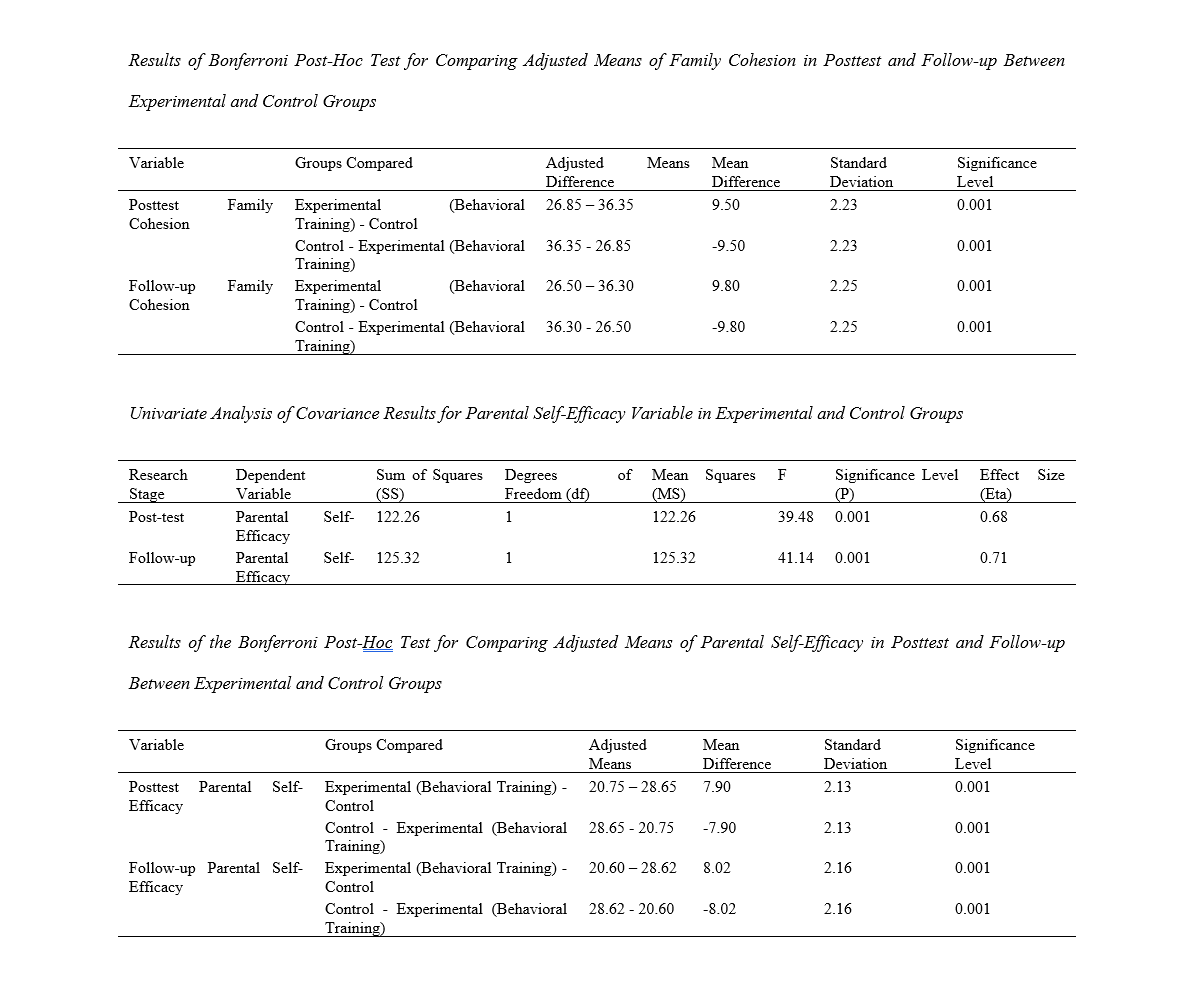Effectiveness of Parental Behavioral Training on Distress Tolerance, Family Cohesion, and Maternal Parenting Self-Efficacy in Mothers of Children with Oppositional Defiant Disorder Symptoms
Abstract
Objective: Oppositional Defiant Disorder (ODD) is one of the behavioral disorders classified under destructive and harmful behavior disorders. Children with this disorder tend to destroy objects around them and defy the commands of parents and school authorities. Therefore, the purpose of this study was to examine the effectiveness of parental behavioral training on distress tolerance, family cohesion, and maternal parenting self-efficacy in mothers of children with symptoms of ODD.
Methods and Materials: This study employed an experimental method. It was designed as a quasi-experimental study with pre-test, p1-10ost-test, follow-up, and control groups. The population of this study included all mothers of children with symptoms of ODD under the coverage of the Imam Khomeini Relief Committee in Sari city during the academic year 2021-2022. Thirty individuals were selected through purposive sampling from among mothers of children with ODD and divided into two groups of 15 (one experimental and one control group). The experimental group received parenting training based on Choice Theory in eight 90-minute sessions, while the control group was placed on a waiting list. Measurement tools included the Distress Tolerance Scale by Simons and Gaher (2005), the Family Cohesion Scale by Olson (1999), and the Parenting Self-Efficacy Questionnaire by Dumka. Descriptive statistics (such as frequency tables, mean indexes, and standard deviation) and inferential statistics (univariate analysis of covariance and Bonferroni post-hoc test) were used for data analysis, with SPSS-22 software facilitating the analysis process.
Findings: The F-value of univariate analysis of covariance for the distress tolerance variable in the post-test (F=59.57, P=0.001) and follow-up (F=57.85, P=0.001), family cohesion in the post-test (F=45.52, P=0.001) and follow-up (F=47.13, P=0.001), and finally for the parenting self-efficacy variable in the post-test (F=39.48, P=0.001) and follow-up (F=41.14, P=0.001) were significant.
Conclusion: Based on the findings, it can be concluded that parental behavioral training is effective in improving distress tolerance, family cohesion, and maternal parenting self-efficacy in mothers of children with symptoms of ODD.
Downloads

Downloads
Additional Files
Published
Submitted
Revised
Accepted
Issue
Section
License
Copyright (c) 2024 Firozeh Oladzad Abbasabadi (Author); Ramezan Hasanzadeh (Corresponding Author); Hosseinali Ghanadzadegan (Author)

This work is licensed under a Creative Commons Attribution-NonCommercial 4.0 International License.








